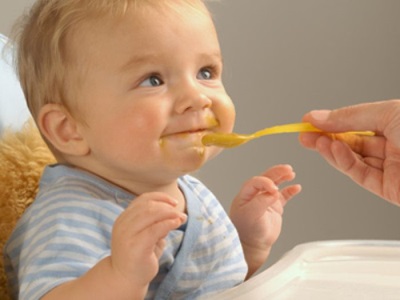White blood cells in the feces of a child
Analyzes of feces help determine the health of the infant, while the number of leukocytes is one of the important indicators. How many white blood cells should normally be and as evidenced by the increase in leukocytes in the stools?
Detection with coprogram
Examination of the feces helps to determine the condition of the child’s digestive system. results coprograms (this is what they call this analysis) will show whether the baby has a stomach disease, liver, small intestine, pancreas, large intestine or gall bladder and whether the value of leukocytes in the feces of a child is increased. Based on this analysis, you can determine the presence of inflammation in the digestive tract, as well as dysfunction of enzymes. Also, this study helps to identify parasites - Giardia and worms.
In a newborn - is it worth worrying?
Considering the readings of the coprogram, one should also pay attention to the behavior of the baby. If the number of leukocytes is not greatly increased, and the child is alert, does not complain of pain, eats well, his sleep is not disturbed, then there is no need to worry. Even if the feces of a newborn with elevated leukocytes have a greenish hue, but the condition of the baby is not disturbed, there are no fears.
Parents should be alarmed only by the appearance of colic in the baby, rashes on the skin, weight loss, large amounts of mucus in the stool and a sharp smell of feces.
The reasons
The excess of the number of leukocytes in the fecal masses is a sign of an inflammatory process. Finding out its causes is important for treating a baby. Most often, white blood cells are detected with prolonged diarrhea.
Possible illnesses
Detection of leukocytosis in the feces may indicate the presence of:
- Inflammation of the small intestine. With this pathology there are lumps of mucus.
- Dysbacteriosis caused by the presence of Escherichia coli or parasites.
- Ulcerative colitis. This pathology causes an increase in neutrophils.
- Allergic colitis. It is characterized by an increase in eosinophils.
- Dysentery. With this disease, there are many neutrophils.
- Spastic colitis. Fecal masses contain many undigested dietary fiber.
Norm
If the baby is not ill with anything, only single white blood cells will be found in its fecal masses. The normal number of leukocytes in a healthy child is up to 8-10 in the field of view.
How to lower the rate?
When leukocytes in the feces are detected in a healthy baby, it may be worth revisiting its diet. A nursing mother should pay more attention to a healthy diet, and if the baby is receiving supplements, it is important to make sure that the introduction of complementary foods is carried out in due time.
What to do?
Be sure to go with the baby to the doctor if the condition of the baby is worsened and he has at least one of the following symptoms:
- The child is lethargic and sleepy.
- The kid is weakened.
- Scarce crying without tears, whining.
- If you pinch the skin of the baby, it is not smoothed.
- The lips of the baby have become dry, and there is little saliva in the mouth.
- Urination decreased. Urine is darker, with an unpleasant smell.
- The child has vomiting.
- The baby’s chair has become frequent (more than 12 times a day), of a liquid consistency, and its smell is sharp.
- Body temperature is elevated.
Having passed the tests and in consultation with the doctor, you will be able to identify the cause of the indisposition and help the baby on time.It is not recommended to give the child any medicines before the baby examines the doctor.









